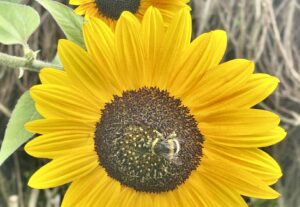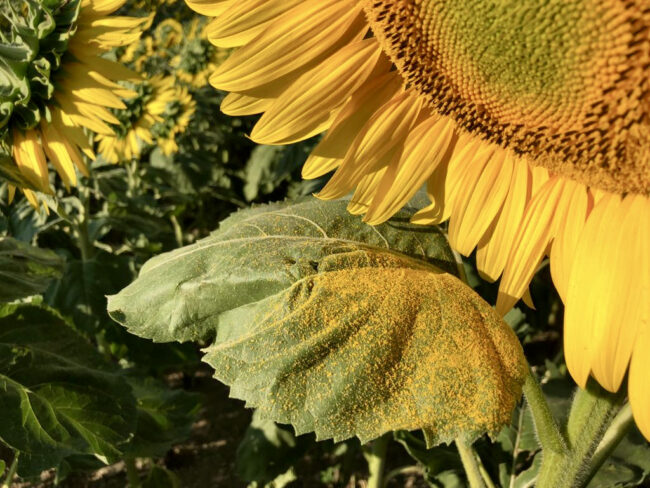Woodlands web notes : 31

Gardens help out
The blog has reported on several occasions on the problems bees, bumblebees and other insect pollinators face. Now research by the Univeristy of Bristol has demonstrated the importance of gardens and urban areas to many farmland pollinators. At certain times of years, such as early Spring and late Summer,, rural pollinators experience limited supply of nectar. Somewhat surprisingly, a large percentage of UK farmland is within a mile of a garden, and at times of scarcity gardens can make good the lack of nectar [and pollen]. Indeed, the Bristol research (by Dr T Timberlake and colleagues) indicates that gardens can provide between 50 and 95% of the nectar during these 'lean times'. Whilst gardens provide a relatively small amount of nectar in rural areas, nevertheless the continuity of the supply makes its contribution particularly valuable.
Full details of this investigation are reported here : https://royalsocietypublishing.org/doi/10.1098/rspb.2024.1523
Sunflowers to help bumblebees ?
One of the issues that bumblebees face is infection by the parasite Crithidia bombi. It lives in the gut of the bee. The parasite passes from host to host as cysts in faeces. The parasites develop in the digestive tract, interacting with the intestinal lining using a flagellum. Infection with this parasite seems to affect the bee's ability to learn and they struggle to recognise nectar-rich flowers, and consequently are at risk of starvation.
Recent research has shown that if bumblebees are offered sunflower pollen to feed upon, then the Crithidia infection is significantly reduced.
 As bumblebees are often used in commercial glassshouses, it could be that if sunflower pollen was offered within this 'closed' environment then the incidence of Crithidia infection could be controlled. The sunflower pollen does not have to be 'fresh', indeed stored, frozen pollen is effective. A 1:1 mixture of sunflower and wildflower pollen also gives the desired 'medicinal effect', and ensures the bees are receiving enough protein and sodium from this supplement.
As bumblebees are often used in commercial glassshouses, it could be that if sunflower pollen was offered within this 'closed' environment then the incidence of Crithidia infection could be controlled. The sunflower pollen does not have to be 'fresh', indeed stored, frozen pollen is effective. A 1:1 mixture of sunflower and wildflower pollen also gives the desired 'medicinal effect', and ensures the bees are receiving enough protein and sodium from this supplement.
Full details of this investigation are reported here : https://academic.oup.com/jee/article/116/5/1939/7234927
Comments are closed for this post.
